Why the Pause Matters
(Backed by Science)
In a world that rewards constant productivity, taking a moment to pause can feel radical.
But neuroscience shows it’s not just helpful, it’s essential.
When we pause, even briefly, we create space for the nervous system to shift out of fight-or-flight (the sympathetic state) and into rest-and-restore (the parasympathetic state).
This shift:
Slows the heart rate
Lowers blood pressure
Reduces cortisol (the stress hormone)
Increases vagal tone, which supports a sense of calm and emotional regulation
Eases muscle tension
Mindful breathing and meditation stimulate the vagus nerve, a key player in the nervous system, helping us feel grounded and safe in our bodies. Over time, regular practice has been shown to:
Reduce anxiety and chronic stress
Improve focus and memory
Increase grey matter in parts of the brain linked to compassion, emotional balance and decision-making
Improve sleep
Boost resilience to everyday stressors
Reduce reactivity
Greater presence
A short pause, even 2–3 minutes, can interrupt patterns of overthinking and reactivity, creating space to respond rather than react. This isn’t about zoning out or escaping life. It’s about building nervous system literacy — learning to understand your body’s signals and give it what it needs to regulate, reset and return to balance.


